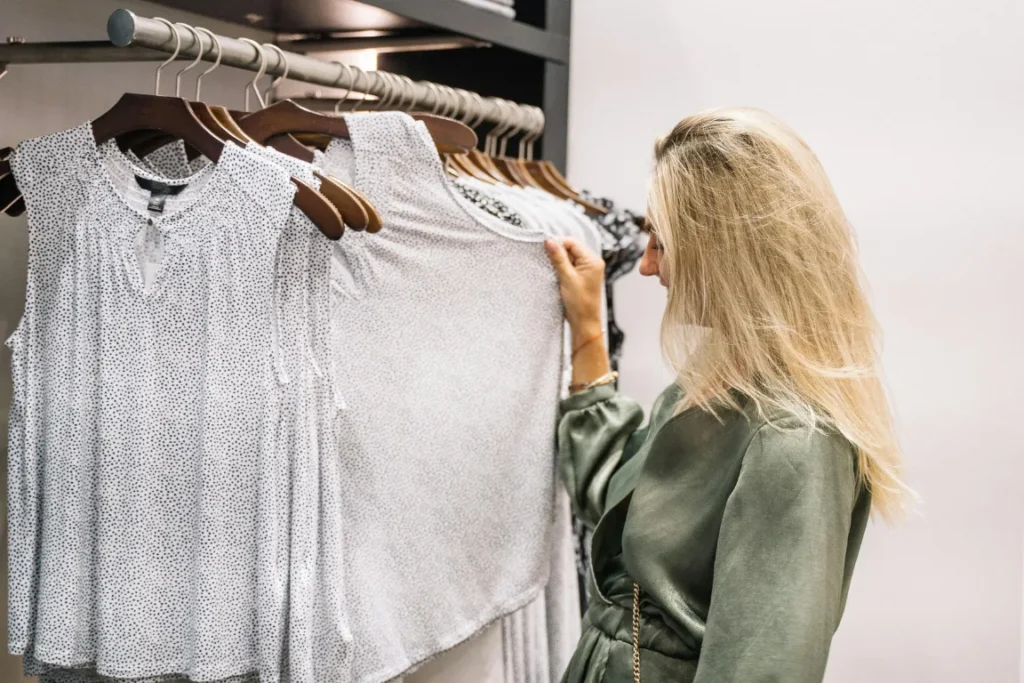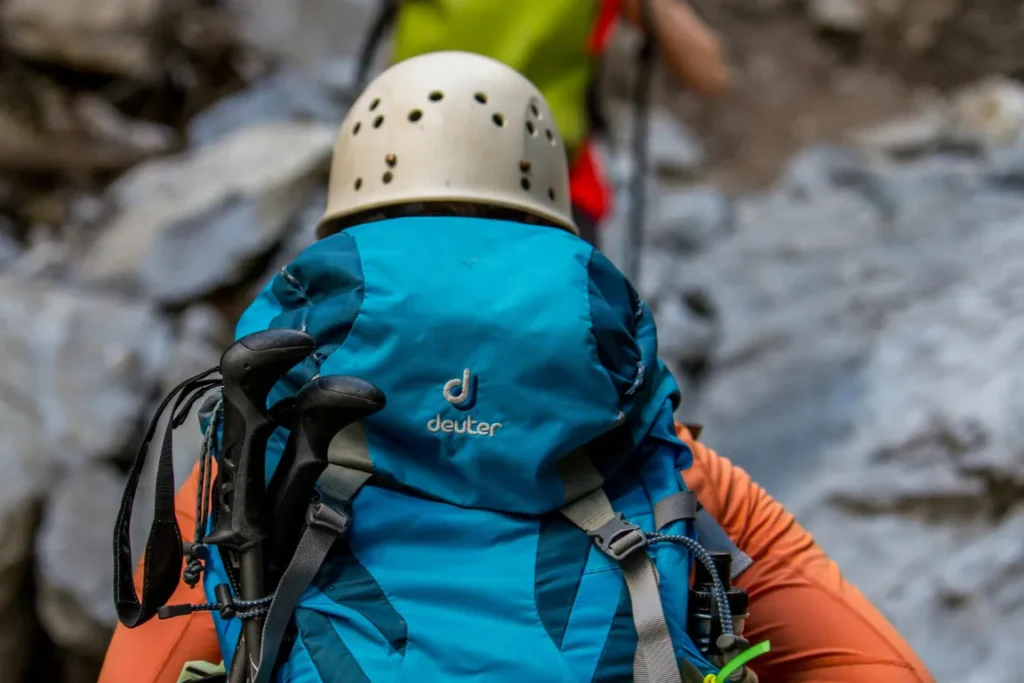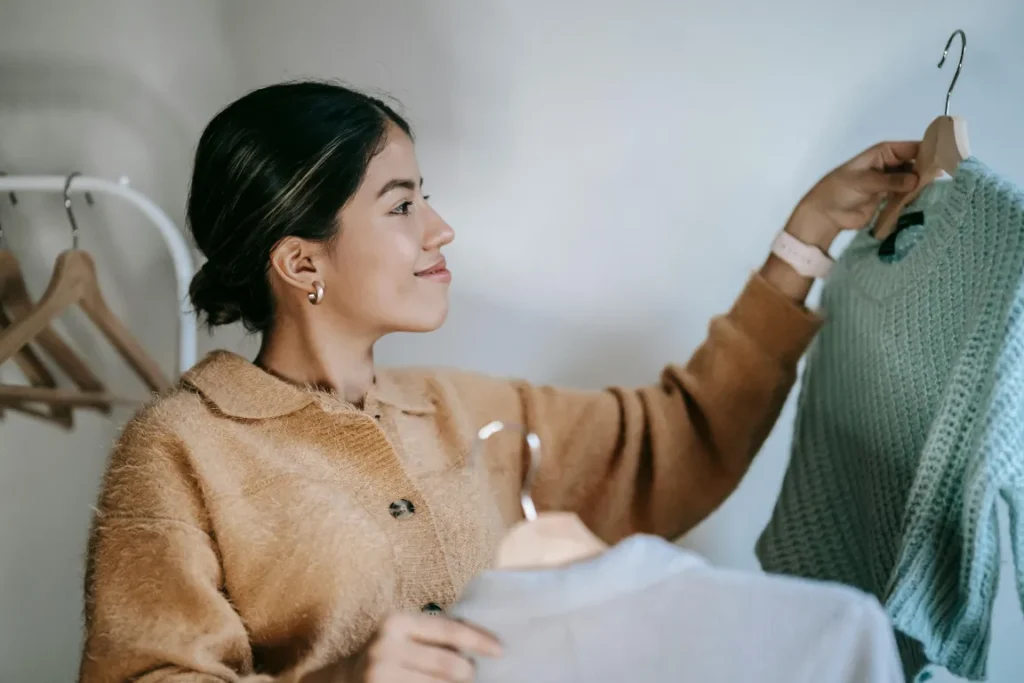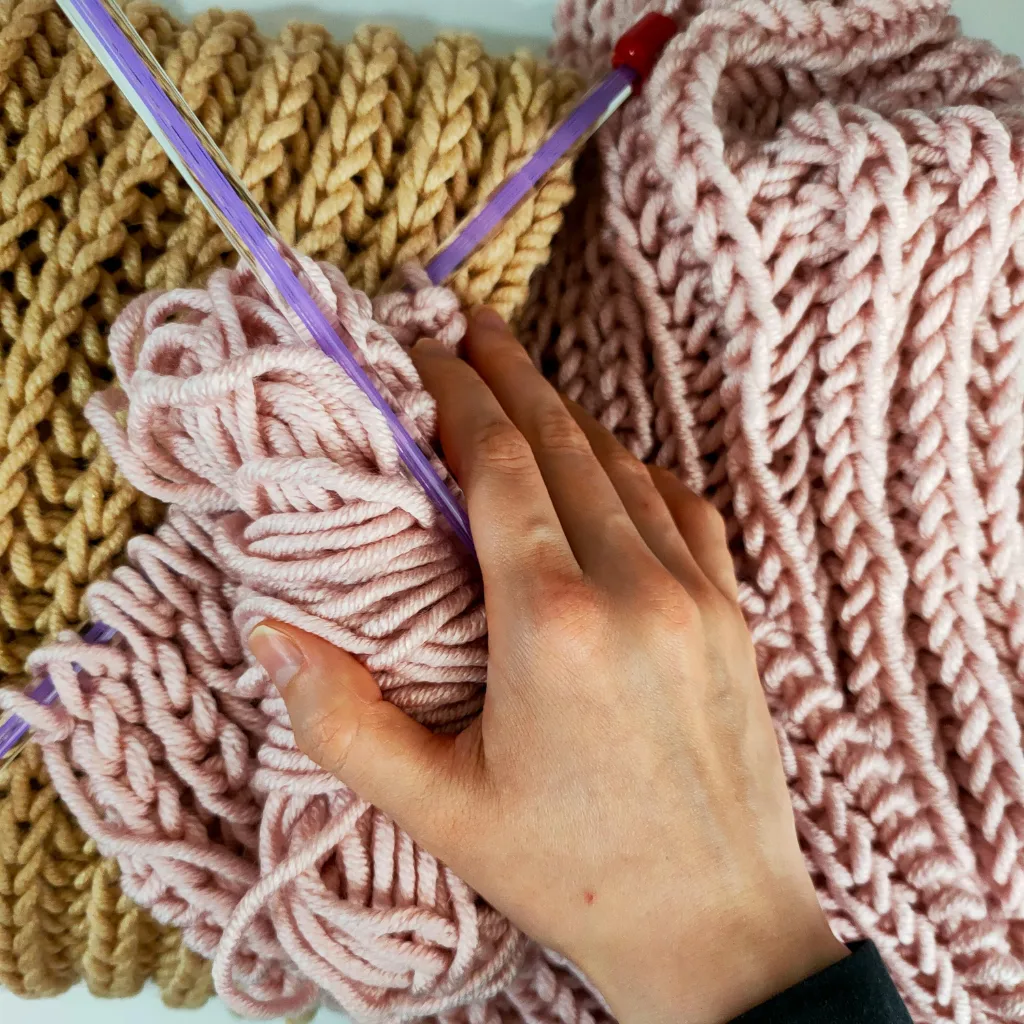"PFAS found in outdoor clothing".
"Even children are not protected: PFAS found in their clothes".
"PFAS are everywhere: in pots and pans, in the food you eat, in the water and even in the atmosphere".
That's enough scaremongering for me, don't you think?
But what are we talking about?
Why are we so afraid of these products?
What are PFAS and why are they of concern?
The term PFAS stands for 'perfluoroalkyl substances', and they are a huge family of over 4000 chemical compounds that we have been synthesising since the 1940s in various industries.
And this enormous production is facilitated by the wonderful properties of these fabrics:
- They are water-repellent;
- They are stain resistant;
- They last indefinitely.
But I talk about all of this in detail in the video I leave you with below, where I explain in detail how these substances are truly detrimental to the health of the natural environment as well as to the health of us humans.
Instead, I would like to talk about how we can stop contributing to this further damage to the planet and people by making everyday choices.
In particular, this time we are going to talk about how we can promote environmental health by choosing sustainable clothing brands
that also do not contain (or at least only a small proportion of) this large family of chemical pollutants such as PFAS.
PFAS in outdoor clothing...
Before I get into the list of brands that, in my opinion and the opinion of my students in the field of clothing and sustainability, deserve to be mentioned and applauded for their great commitment, I would like to explain how I have decided to divide up this little story.
So far, there has been a lot of talk about the presence of PFAS in outdoor clothing, specifically for people who spend at least a small part of their week in the forest, in the mountains or in nature.
I think this is a very important discourse to consider, also because I think it is really absurd that a world that is supposed to be so connected to nature is actually so connected to the use of substances that degrade nature.
So I thought I would put together a list of 5 sustainable brands that have decided to get rid of PFAS and use substitutes that are much more sustainable and in line with the world we hikers love to contemplate: nature!
And so far, nothing strange: fortunately, sustainable outdoor brands do exist and, fortunately, they are becoming more and more!
... and more!
The big PFAS problem, however, is not limited to outdoor clothing, but has unfortunately affected every aspect of our lives, including the clothes we wear every day: from work clothes to pyjamas to 'home clothes'.

In short, it is true that these PFAS are everywhere!
But it is also true that by digging a little deeper and doing some curious research, morale can even rise, and not just a little!
I can assure you of that!
In order to be able to give you all the information you need about the various brands that are committed to the health of the planet in all its aspects, I have discovered that the companies that have decided to throw PFAS out of the window and move towards more sustainable conditions are truly many!
That is why I am also going to leave you with a list of 5 other brands, this time not dedicated to outdoor clothing, that have decided to sacrifice themselves in the production of ordinary clothes that we keep in our wardrobes for everyday use.
Holy sustainable realities!
OK, we can start.
So let's start with the outdoor clothing brands!
Outdoor brands that have said "goodbye" to PFAS
Vaude
This brand is a pioneer in the production of sustainable outdoor apparel, so much so that it started thinking about phasing out PFAS many years ago, and has done nothing but implement it over the years, becoming a major player in the use of alternative Durable Water Repellent treatments without fluorocarbons.
And just to make sure that nothing is left out, Vaude is also "Green Shape" certified, which guarantees that 100% of the materials used are organic and produced using environmentally friendly production processes.
Patagonia
Well, I'm going to state the obvious, but I honestly couldn't resist mentioning this immense and fabulous company!
Patagonia, not only have some truly wonderful (my personal idea, just to be clear) and highly functional clothing of all kinds, but they have also been using PFAS-free coatings, for years and have also adopted the use of recycled materials for the majority of their clothing.
One aspect of this brand that I think is really important to highlight is that for years it has been very supportive of research to to develop more sustainable technologies, even promoting repair and recycling programmes to prolong the life of its garments.
In short, I would say that you can't really blame Patagonia for anything, can you?
Deuter
Founded in 1898, this company is dedicated to the production of clothing and accessories for outdoor activities such as hiking, but also cycling!
Deuter, to this day, is committed to eliminating various PFAS substances by carefully selecting alternative materials for all of its products, from accessories to hiking backpacks.
The company also uses only bludesign®-certified fabrics , which guarantee clean and environmentally friendly production.

Houdini Sportswear
Houdini Sportswear is a very innovative company that focuses in particular on fully circular materials, which means that its garments are always produced in such a way that they can be recycled .
In addition, this company, which specialises in the production of outdoor and sports clothing, naturally produces a range of water-repellent garments, but always and only in the absence of fluorocarbons, i.e. PFAS.
Not bad, eh?
And this is not the end of the company's commitment to environmental sustainability!
In fact, Houdini Sportswear is actively working with researchers and environmental organisations to find ever more innovative solutions to pollution, especially PFAS.
Jack Wolfskin
Jack Wolfskin has developed "Texapore Ecosphere" technology, which makes it possible to produce PFAS-free fabrics that are both waterproof and breathable.
The company is also a member of the Fair Wear Foundation, which promotes transparency in the production chain.
But now let's move on to the 5 everyday clothing brands that, just like the 5 above,
have decided to commit to more conscious and PFAS-free production!

To you who are so concerned about the fate of our planet, I want to tell you that there is a way to recognise what is beautiful about our Earth,
and we can talk about it together right here!!
"Traditional" clothing brands that have phased out PFAS
Mate The Label
Mate The Label produces clothing using only organic cotton and natural fabrics.
In short, it avoids the use of toxic chemicals, including PFAS!
The company also uses a range of non-toxic dyes and is committed to developing environmentally friendly production techniques.
Harvest & Mill
A Californian brand that only uses biological cotton grown in the USA,
Harvest & Mill develops garments that are only produced locally to reduce its carbon footprint, as much as possible.
The brand has also developed an entire production process that completely eliminates harmful chemicals such as PFAS.

Allbirds
Allbirds, has chosen to use only natural materials, such as merino wool, eucalyptus fibres and sugar cane in its shoe production!!
When you study this company, it is really easy to see how transparent they are about their sustainable practices!
It is an alternative brand to the many that can be found in our cities that really deserves serious consideration!
Outerknown
Founded by surfer Kelly Slater, this brand has been using fabrics such as organic cotton, linen and recycled nylon since its inception.
Outerknown works with Fair Trade certified suppliers and has been committed to eliminating PFAS from all of its production processes, choosing alternative treatments that still maintain high quality garments.
Kotn
Kotn uses mainly organic Egyptian cottonfree from pesticides and chemical fertilisers, as the primary material in its production.
The company has always been committed to sustainability and transparency, so much so that they have always ensured that none of the harmful chemicals, including PFAS, are used in the production of their clothes!
And here we are at the end of this excursus on various sustainable brands in the fabulous field of environmental sustainability, which I hope will sooner rather than later succeed in destroying once and for all the large-scale production of pollutants and, above all, the terrible nightmare world of fast fashion!
As always, it is important for me to remember that even in our small and seemingly useless daily lives, we can actually make a difference.
Let us always remember that big realities, like fashion in this case, always depend on the choices we consumers make day by day.
If we all start to stop buying from that big multinational brand that only sells harmful crap, what will that brand ever be forced to do when it is faced with all those empty spaces and unsold clothes?
Let's think about it, World!

Leave a Reply